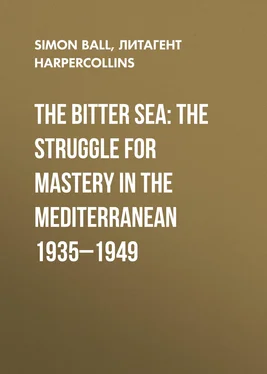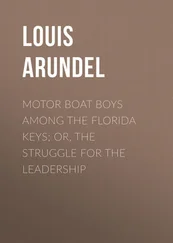At the point of decision, the tensions in Mussolini’s Mediterranean imagination were revealed more clearly than ever. That tension was visibly unhinging him. As Mussolini was writing his ‘plan of action’ others were writing character studies of him. ‘Physically, Mussolini is not the man he was,’ observed the British ambassador, Sir Percy Loraine, ‘he is beginning to go down the hill.’ He might boast endlessly about his running, riding, swimming, tennis, fencing, motoring, flying and, above all, his sexual athleticism. ‘But’, Sir Percy noted, ‘this self-justification is a well known sign of senescence.’ Mussolini was uneasy, fearing ‘that great events are happening and there is no heroic role for Mussolini’; he was irritated ‘that those muddle-headed English should have all the places of which Mussolini could make a really beautiful empire to the Greater Glory of Mussolini’. The ambassador concluded that what really drove Mussolini to distraction was that ‘his principal advisers, both political and military, not only expect the Allies to win, but actually wish them to win’. 73
Loraine was fooling himself that Mussolini’s cronies were pro-British. He was right to believe that they were unenthused by Mussolini’s plan. But they were either Mussolini’s creatures or in the thrall of such creatures. If the Duce wanted a war they would never gainsay him: the only way to stop the dictator was to overthrow him, and they feared that conspiracy more than war. What they wanted to torpedo was his fantasy about fighting anywhere other than in the Mediterranean. They fell on the phrase an offensive right down the line of the Mediterranean and outside it’. There was no chance of the Regia Marina throwing itself against the Franco-British fleet, defeating them and then sailing elsewhere. What they would be doing would be waging a ‘guerre de course in the Mediterranean’, trying to hinder movement between the eastern and western basins. Mussolini had given the navy the right of the line in his parallel war’, but the man who had to lead it, Cavagnari, was almost beside himself with fear. Despite the prospect of the two new gleaming battleships he was about to commission into service, he did not believe that the naval balance had moved in Italy’s favour since September 1939. He knew what would happen: one enemy fleet would assemble at Gibraltar, the other at Alexandria. Far from breaking the bars of the Mediterranean, Italy and her fleet would ‘asphyxiate’ within it. 74
On 12 April 1940 Mussolini ordered the fleet to prepare for war. He mobilized the organs of Fascist propaganda to prepare the people for an offensive against Britain’s ‘tyranny of the seas’. On 21 April 1940 the Ministry of Popular Culture–the politically correct term for the propaganda machine–announced: ‘the whole Mediterranean was under the control of Italy’s naval and air forces; and if Britain dared to fight she would at once be driven out’. The spokesman who made the announcement confided to his diary that evening that he knew it to be nonsense. 75 The British could hardly do anything else but conclude that Italy was about to attack them. But even at his most belligerent Mussolini had inserted the caveat that ‘Germany must defeat France first’. It was only on 13 May 1940, with the Maginot Line breached, and the Anglo-Belgian-French armies in disarray that he decided that Italy would go to war. 76 ‘What can you say’, he demanded of Ciano, ‘to someone who doesn’t dare risk a single soldier while his ally is winning a crushing victory, and that victory can give Italy back the remainder of its national territory and establish its supremacy in the Mediterranean?’ 77 Mussolini had talked himself into a war. ‘It’s all over because the madman wants to make war,’ a prescient Balbo warned his fellow Fascists, ‘there won’t enough lampposts to hang you all.’ 78
The Mediterranean war lived up to the expectations of those who had planned it. 1 This correlation between ideas and execution owed much to the cold dose of reality forced on the Mediterranean dreamers by the war scare of the summer of 1939. Much of the wild talk of earlier years had ceased before the shooting began. 2
Cavagnari’s Regia Marina had abandoned grandiose plans for ruling the sea, much less sweeping out of it. They had instead set themselves realistic tasks on both the east–west and north–south axes. The Italians believed that they could erect a system of defence which would divide the Mediterranean into eastern and western basins. The lynchpin of that system was the central Mediterranean, and in particular the Sicilian Narrows. But they had no truck with the belief that the system of defence would be impermeable. With enough expenditure of effort it would still be possible, if difficult, for the British and the French to sail between the western and eastern basins. 3 The first naval mission of the war was minelaying in the Sicilian Narrows. 4 The British naval commander in the Mediterranean was soon to pay tribute to this Italian system of defence. Their arrangements were ‘very efficient’, ‘first class’ in fact. British submarine losses were so severe–nearly every boat that approached the Italian harbours was sunk–that they had to withdraw to safer waters. 5 Contact mines proved to be ‘the primary menace in the Mediterranean’. 6 Although relatively few surface ships were sunk by mines in the first months of the war–the first, the destroyer Hostile, exploded catastrophically off Cap Bon at the end of August 1940–the ‘constant anxiety [about] what is to be done with a damaged capital ship’ made ‘minable water’ virtually no-go areas ‘without some very good reason’. 7
Equally the Regia Marina believed that it could carry out the limited task of escorting convoys from north to south, setting off from Naples and arriving in the unlading ports of Tripoli, Benghazi and Tobruk. Although the relatively short distance favoured the Italian sailors, they were far from sanguine, realizing that they would have to rely on expedients, such as the use of submarines and destroyers as well as merchant ships. They had providently transported the bulk of the troops in the weeks before the war began. 8 Equally, the collapse of British enthusiasm for grand Mediterranean adventures, under the guiding hand of Dudley Pound, left the Royal Navy equally as sanguine as the Regia Marina. The British sailors believed that they could get through the Mediterranean, but with the greatest of difficulty. Heavily armed warships would have a chance; the average merchant was easy meat. The geography and distances were against them. Some officers even doubted whether the game was worth the candle. Such complete sceptics were, however, quickly shushed in both London and Alexandria. 9
Even Mussolini might be given some credit for realism, on this issue at least. He had consistently railed against his Mediterranean prison, claiming that the British would stop up both ends and trap Italy within. And indeed that is exactly what the British did. Within weeks the Mediterranean had two gatekeepers, self-styled after the giant twin guardians of the underworld in English legend, Gog and Magog. 10 Magog was James Somerville, sent from Britain with a fleet–known as Force H–to secure the western exit at Gibraltar. 11 Gog was Andrew Cunningham who, on the eve of war, took the Mediterranean Fleet away from Malta and established it at the eastern exit, protecting the mouth of the Suez Canal from Alexandria. They were true naval twins, exact contemporaries, boys from the same class of the late-Victorian navy. Apart from that, the two gatekeepers were most unlike. Cunningham, the acknowledged star of the navy, was fierce to the point of over-confidence. Independent by temperament, now semi-marooned in the eastern basin, he felt himself to be the co-adjutor with London of the fate of the Mediterranean. Cunningham walked the fine line of insubordination–earning himself Churchill’s dislike–with the arrogance of irreplaceability Somerville was quite the opposite, a dug-out from the retired list, sent to Gibraltar mainly because of his immediate availability. In contrast to Cunninghams bursts of confidence, Somerville was perpetually gloomy, cavilling against, yet in thrall, to his masters, to whom he referred in terms of dread and contempt as Their Lordships. Somerville, unlike Cunningham, was kept on a tight leash, although that did not spare him Churchill’s similar dislike. His orders came directly from London; from London too–with a direct air link–came numerous senior officers enquiring into his conduct, some actively seeking his job.
Читать дальше












